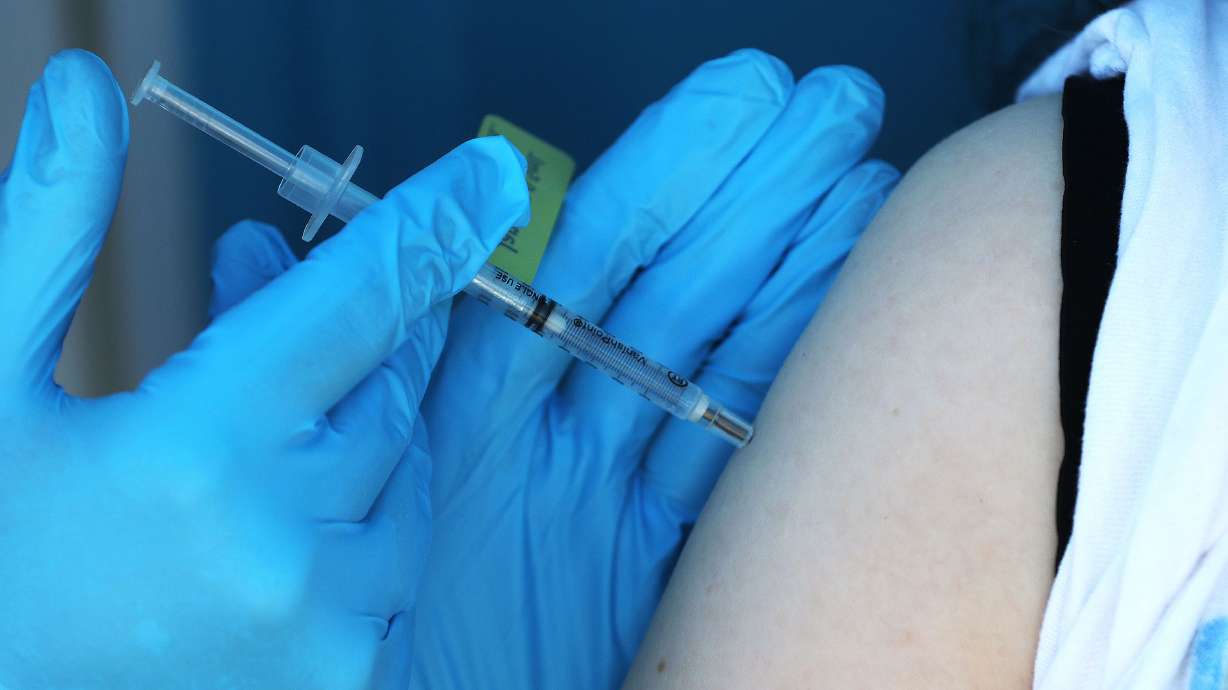Estimated read time: 3-4 minutes
This archived news story is available only for your personal, non-commercial use. Information in the story may be outdated or superseded by additional information. Reading or replaying the story in its archived form does not constitute a republication of the story.
SALT LAKE CITY — Just over half of adults surveyed nationally say they've heard little or nothing about the first updated COVID-19 booster shot, and only about a third have either already gotten the extra vaccine dose or are planning to roll up their sleeves anytime soon.
The Kaiser Family Foundation described the latest findings from its ongoing KFF COVID-19 Vaccine Monitor Poll as suggesting there's only a "relatively modest" awareness of the booster dose now targeted at the omicron subvariants, including BA.5, currently circulating in addition to the original virus.
That's despite a monthlong push by the federal government to get the shots, seen by the Biden administration as the start of annual vaccinations to protect Americans against a virus that is not expected to go away even though President Joe Biden recently said the pandemic is over.
Dr. Anthony Fauci, the president's chief medical adviser, urged Americans to get the updated booster shot given final federal authorization at the start of September "as soon as you are eligible in order to protect yourself, your family, and your community against COVID-19 this fall and winter."
There are two brands of what's known as a bivalent booster shot available, Pfizer for people as young as 12 years old and Moderna for those 18 and older. The new booster shots can be given two months after the initial vaccine series or original booster dose, or three months after a bout of COVID-19.
The new booster shots could become available to children as young as 5 as soon as mid-October.
But according to the KFF poll, only 17% of adults had read or heard "a lot" about the new shots, while 33%, said they'd heard "some," 31%, "a little" and 20%, "nothing at all." Just under half of the respondents who've already been vaccinated knew they could also get the updated shot.
Still, 5% already have been boosted with the updated shot, and 27% said they'd get it "as soon as possible." Another 18% want to "wait and see" before getting the booster shot, 10% will only do so if required, and 12% have made up their minds that they won't. The rest weren't eligible because they hadn't gotten their initial shots.
The Kaiser Family Foundation, a California-based nonprofit organization focusing on national health issues, conducted the current poll Sept. 15-26 of 1,534 adults nationwide and has a margin of error of plus or minus 3 percentage points.
The results come as the CDC reports just under 68% of people nationwide are considered fully vaccinated because they have completed the initial vaccination series — two doses of Pfizer, Moderna or the recently approved Novavax vaccine, or a single dose of Johnson & Johnson — and nearly 49% have received a first booster dose.
Utah's vaccination rates lag behind, with less than 64% of all Utahns being fully vaccinated and almost 31% receiving a booster shot. More than two-thirds of Utahns are not concerned about contracting COVID-19, according to a new Deseret News/Hinckley Institute of Politics poll.










